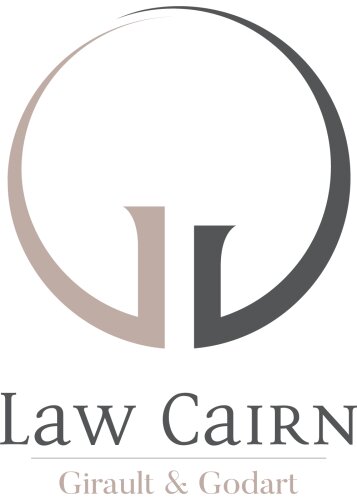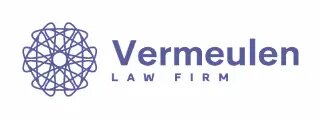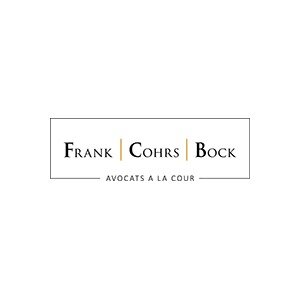Best Reinsurance Lawyers in Luxembourg
Share your needs with us, get contacted by law firms.
Free. Takes 2 min.
Or refine your search by selecting a city:
List of the best lawyers in Luxembourg
About Reinsurance Law in Luxembourg
Reinsurance law in Luxembourg is a specialized area of law that deals with the practice of insurance for insurers. It essentially involves arrangements in which an insurance company transfers a portion of its insurance risk portfolios to another insurance company, known as a reinsurer. This process allows insurance companies to mitigate risk, maintain financial stability, and ensure solvency. Luxembourg is a significant hub for the reinsurance sector in Europe due to its robust legal framework and favorable business environment. The regulatory framework is primarily dictated by the Commissariat aux Assurances (CAA), ensuring the effective supervision of reinsurance activities within the country.
Why You May Need a Lawyer
Engaging a lawyer specialized in reinsurance is crucial for navigating the complexities of the legal environment in Luxembourg. Here are some common situations where legal assistance may be necessary:
- Contract Negotiation: Crafting or negotiating contracts between insurance companies and reinsurers requires careful legal oversight to ensure clarity, compliance, and protection of interests.
- Regulatory Compliance: Ensuring adherence to the regulatory requirements set by the CAA and other relevant bodies is vital for avoiding legal complications.
- Dispute Resolution: If conflicts arise between parties involved in reinsurance agreements, a lawyer can provide the expertise needed to navigate resolutions or litigations.
- Claims Management: Assistance with assessing claims, especially when complex, can ensure sound decision-making and adherence to contractual terms.
- Risk Management: Lawyers can offer advice on risk assessment and strategic planning, helping companies to develop robust risk mitigations strategies.
Local Laws Overview
The reinsurance sector in Luxembourg is governed by local laws that incorporate both EU directives and domestic regulations. Key aspects include:
- Licensing Requirements: Reinsurance companies must obtain appropriate licenses from the CAA to operate legally within Luxembourg.
- Solvency II Directive: Luxembourg has adopted the Solvency II Directive, which prescribes the capital requirements and risk management standards for insurance and reinsurance firms operating in the EU.
- Corporate Governance: Companies must adhere to strict governance standards to ensure transparency, accountability, and financial stability.
- Consumer Protection Laws: Regulations ensure that the rights of policyholders are safeguarded through fair practices and adequate disclosure.
- Data Protection: Compliance with GDPR is essential, given the nature of sensitive data handled by reinsurance companies.
Frequently Asked Questions
What is reinsurance?
Reinsurance is a financial transaction in which an insurance provider transfers its risk portfolio to another company, the reinsurer, to mitigate the risk of significant losses.
Why is Luxembourg a strong choice for reinsurance companies?
Luxembourg offers a stable financial environment, robust regulatory framework, and favorable business conditions, making it an attractive jurisdiction for reinsurance activities.
Who regulates reinsurance in Luxembourg?
Reinsurance activities in Luxembourg are regulated by the Commissariat aux Assurances (CAA), the national supervisory authority for the insurance sector.
What are the main types of reinsurance?
There are two main types of reinsurance: facultative reinsurance, covering individual or specific risks, and treaty reinsurance, covering a portfolio of risks.
Do reinsurance companies need a license to operate in Luxembourg?
Yes, reinsurance companies must obtain a specific license from the CAA to perform reinsurance activities in Luxembourg.
What is the Solvency II Directive?
The Solvency II Directive is an EU framework that sets out the capital requirements and risk management standards for EU-based insurance and reinsurance firms.
How can a reinsurance lawyer assist in claims processing?
A reinsurance lawyer ensures that claims are processed in accordance with contractual terms, providing expertise in negotiations and dispute resolution.
What are the compliance requirements for reinsurance companies?
Companies must meet regulations related to licensing, solvency, corporate governance, consumer protections, and data privacy under GDPR.
Are there specific risk management strategies in reinsurance?
Yes, strategies such as risk assessment, diversification, and contracting with multiple reinsurers help in managing risks effectively.
What happens in the case of a dispute between an insurer and reinsurer?
Disputes are typically resolved through negotiation, arbitration, or litigation, with legal representation often being required to achieve a favorable outcome.
Additional Resources
Consider the following resources for further information or assistance regarding reinsurance in Luxembourg:
- Commissariat aux Assurances (CAA): The primary regulatory authority for reinsurance. Their website provides updates and regulatory guidelines.
- Luxembourg Insurance and Reinsurance Association: Provides industry insights and acts as a platform for professionals in the sector.
- Luxembourg Commercial Courthouse: Handles legal matters related to commercial disputes, including those in the reinsurance sector.
- Chamber of Commerce in Luxembourg: Offers resources and support for businesses involved in reinsurance activities.
Next Steps
If you require legal assistance in reinsurance, consider the following steps:
- Identify Your Needs: Determine the specific legal assistance required, whether it's contract drafting, compliance advice, or dispute resolution.
- Choose a Specialist: Look for a law firm or lawyer with specific experience in reinsurance law to ensure advanced expertise and understanding of the industry.
- Consultation: Arrange an initial consultation to discuss your situation, seek advice, and evaluate the lawyer’s approach to your issue.
- Documentation: Gather all relevant documents and information pertinent to your case for review and better assessment by your lawyer.
- Formal Engagement: Once satisfied, formally engage the lawyer to begin work on your legal needs, ensuring clear communication of expectations and outcomes.
Lawzana helps you find the best lawyers and law firms in Luxembourg through a curated and pre-screened list of qualified legal professionals. Our platform offers rankings and detailed profiles of attorneys and law firms, allowing you to compare based on practice areas, including Reinsurance, experience, and client feedback.
Each profile includes a description of the firm's areas of practice, client reviews, team members and partners, year of establishment, spoken languages, office locations, contact information, social media presence, and any published articles or resources. Most firms on our platform speak English and are experienced in both local and international legal matters.
Get a quote from top-rated law firms in Luxembourg — quickly, securely, and without unnecessary hassle.
Disclaimer:
The information provided on this page is for general informational purposes only and does not constitute legal advice. While we strive to ensure the accuracy and relevance of the content, legal information may change over time, and interpretations of the law can vary. You should always consult with a qualified legal professional for advice specific to your situation.
We disclaim all liability for actions taken or not taken based on the content of this page. If you believe any information is incorrect or outdated, please contact us, and we will review and update it where appropriate.
Browse reinsurance law firms by city in Luxembourg
Refine your search by selecting a city.
















